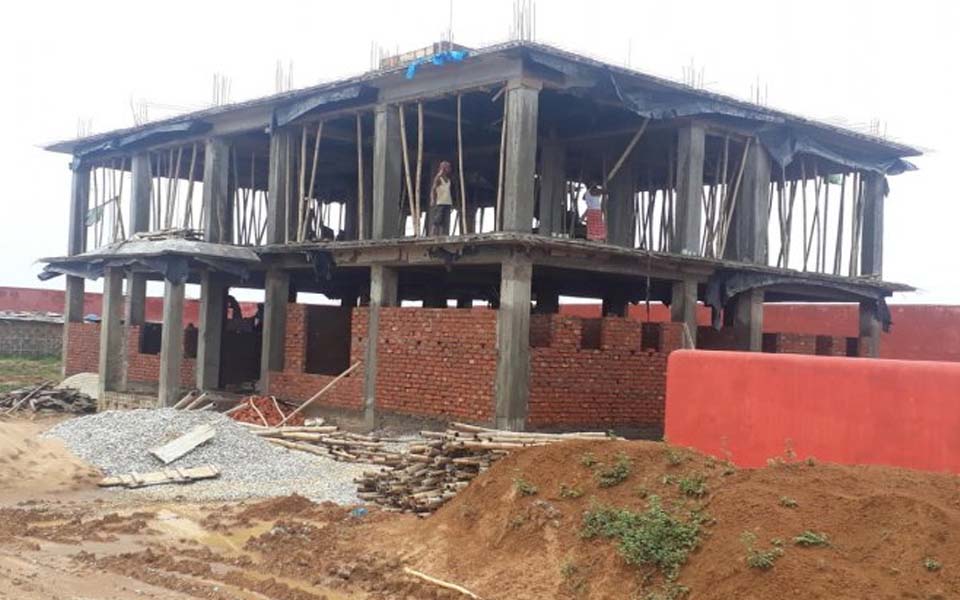NEW DELHI: Detention centers were set up in different parts of India in full compliance with law and with the Supreme Court’s cognizance, sources have said. Detention centers or holding centers or camps are confinement centers where foreign nationals are confined pending nationality verification and issuance of travel documents by the governments concerned and their deportation to their native countries.
Such detention centers were in existence in various states for the last few decades and the setting up of such centers was not at all connected with the National Register of Citizens (NRC), the sources said. The Foreigners Act, 1946, empowers the Center to issue orders imposing restrictions on the movements of a foreigner and requiring the person to reside at a particular place.
Further, under the Passport (Entry into India) Act, 1920, the Center can direct removal of any person from India, who had entered the country without a valid passport or other travel documents. These powers of the Center have been entrusted with the state governments under Article 258(1) of the Constitution and the union territory administrations have also been directed under Article 239 to execute these powers.
Instructions regarding restricting the movements of such foreign nationals, who are awaiting deportation in one of the detention centres or camps, have been issued by the Ministry of Home Affairs (MHA) to the states and UTs since July, 1998 to ensure their physical availability at all times for expeditious deportation as soon as their travel documents are ready.
These instructions were reiterated on November 23, 2009, March 7, 2012, April 29, 2014, September 10, 2014 and September 7, 2018, the sources said. The instructions issued on March 7, 2012, were in pursuance of a Supreme Court order of February 28, 2012.
The apex court had then observed that the foreign nationals, who had completed their sentence, should immediately be released from jail and kept at an appropriate place with restricted movements pending their deportation or repatriation and that the places where they were to be kept – detention centres or by whatever name such places were called – must have basic facilities of electricity, water and hygiene.
The top court, in its order on September 12, 2018, took note of the instructions issued by the MHA on September 10, 2014, advising all state governments to set up detention centers or holding centers or camps for restricting the movements of illegal migrants or foreign nationals awaiting deportation after completion of sentence due to non-confirmation of nationality.
It had observed that not a single state had set up detention centers. The court also took note of the progress in the construction of the detention center at Matia, Goalpara, in Assam sanctioned by the Center and expected the state of Assam to ensure that it was carried out at the earliest.
In the subsequent hearings on September 20, October 31 and November 2, 2018, the Supreme Court reviewed the progress of the construction of this detention center. In pursuance of the top court’s orders on September 20, 2018, a model detention center manual was prepared and circulated by the MHA to all states and UTs on January 9, 2019.
The detention centers were needed to ensure the physical availability of such foreign nationals at all times for expeditious deportation as soon as the travel documents were ready, the sources said, adding that those confined at such centers were not subjected to the strict prison regimes applicable to undertrials and convicted prisoners.
The Assam government has been earmarking portions of jails as detention centers over the last few decades, depending on requirements.
Detention centers or holding centers or camps for foreign nationals are in existence in Assam (in the district jails of Goalpara, Kokrajhar, Tezpur, Jorhat, Dibrugarh and Silchar), NCT of Delhi (Sewa Sadan – Lampur), Mahila Sadan for women) and Shazadabagh (for Bangladeshis), Punjab (in the central jail, Amritsar), Rajasthan (on the jail premises in Alwar), West Bengal (correctional home), Gujarat (Bhuj) and Tamil Nadu.
In terms of the Registration of Foreigners Rules, 1992 and the Foreigners Order, 1948, the Center has appointed superintendents of police in the districts as foreigners registration officers (FROs) and the civil authority for dealing with matters related to foreigners.
Further, it has also appointed foreigners regional registration officers (FRROs) in 12 places – Delhi, Mumbai, Chennai, Kolkata, Amritsar, Bengaluru, Hyderabad, Kochi, Thiruvananthapuram, Kozhikode, Lucknow and Ahmedabad – who act as the civil authority in such places. The FRROs function under the Bureau of Immigration. In terms of the Foreigners Order, 1948, the civil authority can direct any foreigner in writing to comply with the conditions regarding his place of residence and movements, the sources said.
Arrested foreigners, against whom court cases have been filed, are required to be deported to their native countries on completion of the sentence awarded to them by courts. Further, the foreigners staying illegally in the country without valid travel documents are also required to be deported. While the foreigners who have valid passports can be deported immediately, in many cases, they may not have valid passports and in such cases, it may be necessary to get their nationality verified from the foreign mission concerned in India through the Ministry of External Affairs.
Such persons can be deported only after confirmation of their nationality and issuance of travel documents by the foreign mission concerned. This normally took a considerable time, the sources said.
Pending deportation, movements of such foreign nationals were restricted in terms of the provisions of the Foreigners Act, 1946 and the Foreigners Order, 1948 in a detention center, they added. PTI







